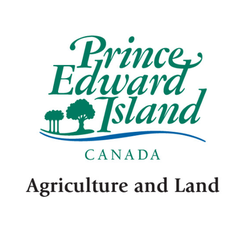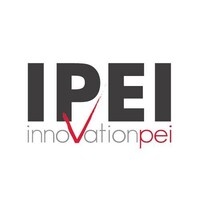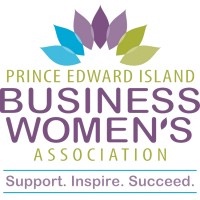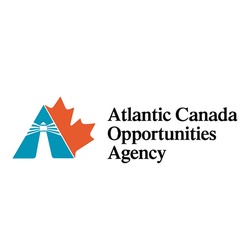
Organic Industry Development — Increasing Market Competitiveness
At a glance
- Maximum amount : 60,000 $
- Up to 70% of project cost
- Unspecified
- All industries
- Prince Edward Island
- Non-profit
- Public or Parapublic institution
- For-profit business
- Sole proprietorship
- Social economy enterprise
- Non-financial cooperative
- All revenue ranges
- All organization sizes
- Indigenous Peoples
- Persons with Disabilities
- Youth (<40)
- Women
- Environment
- Economic, Social and Community Development
- Business Associations
- Indigenous peoples
- Business owners / entrepreneurs
- All structures
- Regional
- Provincial
Overview
Up to $40,000 to cover 50% of the costs related to implementing technologies to meet organic market requirements, improve efficiency or modify a facility to meet certified organic requirements.
Activities funded
The Increasing Market Competitiveness Sub-Program supports activities that enable capturing a larger share of the certified organic market. This enhances profitability through various strategic activities aimed at meeting organic standards and expanding market reach.
- Implementing technology to ensure compliance with certified organic market requirements and improving operational efficiency.
- Modifying facilities to adhere to certified organic standards.
- Developing new organic products or accessing new organic markets.
Eligibility
Eligibility for the Organic Industry Development Program is determined by specific criteria related to the applicant's profile and participation in organic certification.
- The applicant must belong to one of the following groups: Mi’kmaq First Nations and other Indigenous groups, agricultural producers, small to medium-sized agri-businesses, agri-processors, or agriculture industry organizations, clubs, and associations.
- The applicant must have current Organic Certification or have applied to an Organic Certification Body and participated in an organic certification inspection.
Who is eligible?
The Organic Industry Development Program offers various sub-programs, each with specific eligibility criteria for potential applicants aiming to enhance their organic agricultural practices in Prince Edward Island. Eligible entities include:
- Mi’kmaq First Nations and other Indigenous groups.
- Agricultural producers with a current organic certification or those who have applied for it and participated in an organic certification inspection.
- Small to medium-sized agri-businesses operating within the organic sector.
- Agri-processors producing or processing certified organic products.
- Agriculture industry organizations, clubs, and associations involved in organic agriculture.
- PEI Certified Organic Producers Cooperative and Atlantic Canadian Organic Regional Network (ACORN) for the Implementation of Strategic Initiatives Sub-Program.
- Other organizations deemed eligible by the program review committee for strategic initiatives.
Who is not eligible
Certain companies and industries are not eligible for this grant due to restrictions related to the nature of their activities and alignment with the grant's objectives. These exclusions help to focus support on the organic agriculture sector.
- Companies involved in aquaponic food production, or aquaculture, seaweed, fish, and seafood production and processing (except for international marketing and traceability activities for fish and seafood).
- Entities primarily engaged in activities that do not provide a direct benefit to the organic agriculture sector.
- Organizations seeking funds for normal and on-going operating and maintenance activities.
- Businesses looking to purchase capital equipment, as these expenses are ineligible for some sub-programs.
- Firms seeking support for activities providing tax credits or rebates.
Eligible expenses
The Organic Industry Development Program offers support through various activities aimed at enhancing the growth and competitiveness of the organic agriculture sector in Prince Edward Island. Eligible activities cover technological upgrades, facility modifications, specialized equipment acquisition, land conversion, and strategic initiatives to bolster the sector’s capacity.
- Acquisition of technology to meet certified organic market requirements and improve efficiency.
- Modification of facilities to meet certified organic standards.
- Development of new organic products or exploration of new organic markets.
- Purchase of specialized equipment such as portable grain cleaners and dryers, flame weeders, mechanical weeders, and cover crop technology.
- Support for land conversion to certified organic farmland in the first year of conversion.
- Development of strategic initiatives to increase the organic sector’s strategic capacity.
- Market development activities and consulting services.
- Support for salaries, materials, and supplies for strategic initiatives.
- Coverage of administrative and overhead costs up to 10% of eligible costs.
Eligible geographic areas
This grant is administered by the Government of Prince Edward Island, indicating its primary focus on supporting businesses within that province. Eligible recipients are thereby expected to have a geographic presence in or significant association with Prince Edward Island.
- Organizations and businesses located in Prince Edward Island, Canada.
Selection criteria
There are evaluation and selection criteria for the Organic Industry Development Program, focusing on the merit, impact, and adherence to eligibility criteria of the submitted applications.
- Approved projects must be completed within the timeframe outlined in the funding agreement.
- Recipients must meet the eligibility criteria and submit a complete application to the Department of Agriculture.
- Applications will be assessed on a first-come, first-served basis for merit and impact.
- If the project is not approved, all incurred costs are the responsibility of the recipient.
- Assistance will be available until funds are totally allocated within that year.
- Projects may be funded below the maximum contribution rate upon assessment and availability of funding.
How to apply
Review Guidelines
Gather Required Information
- Prepare necessary documentation including your business or organization information, CRA registration number, project particulars, additional funding sources, and recipient type.
- If applicable, collect partnership information and complete demographic information.
Complete Application Form
- Fill out the Organic Industry Development Program General Application Form comprehensively.
- Complete Appendix A and/or B depending on which sub-program(s) you are applying for.
Submission of Application
- Email your completed application to with the program name in the subject line.
- Alternatively, mail the application to PEI Department of Agriculture, 11 Kent Street, PO Box 2000, Charlottetown PE C1A 7N8.
Additional information
Here are additional relevant details for this grant:
- The total maximum funding available to any recipient from all Organic Industry Development Sub-Programs is $60,000 for the duration of the Sustainable CAP Framework Agreement (2023-2028).
- If equipment is planned to be leased instead of purchased, additional funding guidelines will apply, necessitating a discussion with a Program Advisor before application submission.
- Projects will be funded on a first come-first serve basis, until funds are fully allocated for the year.
- Projects may receive funding below the maximum contribution rate based on assessment and funding availability.
- Applications that demonstrate links to increasing public trust or regional collaboration across more than one Atlantic province may qualify for additional project funding.
- Recipients must submit a claim form summarizing expenditures, including copies of all paid invoices and verification of payment, a report on the project's outcomes, and copies or photos of funded materials.
- Approved projects must be completed within the timeframe outlined in the funding agreement.
Contacts
Frequently Asked Questions about the Organic Industry Development — Increasing Market Competitiveness Program
What is the Organic Industry Development — Increasing Market Competitiveness?
How much funding can be received?
Who is eligible for the Organic Industry Development — Increasing Market Competitiveness program?
What expenses are eligible under Organic Industry Development — Increasing Market Competitiveness?
Who can I contact for more information about the Organic Industry Development — Increasing Market Competitiveness?
Where is the Organic Industry Development — Increasing Market Competitiveness available?
Is the Organic Industry Development — Increasing Market Competitiveness a grant, loan, or tax credit?
More programs like this

Innovation PEI Small Business Assistance
Government of Prince Edward Island
Enriched Investment Tax Credit
Government of Prince Edward Island
E-tools for Exporting
LearnSphere
Product and Market Development Program — Agricultural Industry Organizations
Government of Prince Edward Island
Product and Market Development Program — Agri-Businesses
Government of Prince Edward Island
Strategic Improvement Assistance
Government of Prince Edward Island
Organic Industry Development — Certified Organic Land Conversion
Government of Prince Edward Island
Accelerate HER PEI
Prince Edward Island Business Women's Association
Atlantic Innovation Fund — Private Sector Businesses
Atlantic Canada Opportunities Agency (ACOA)